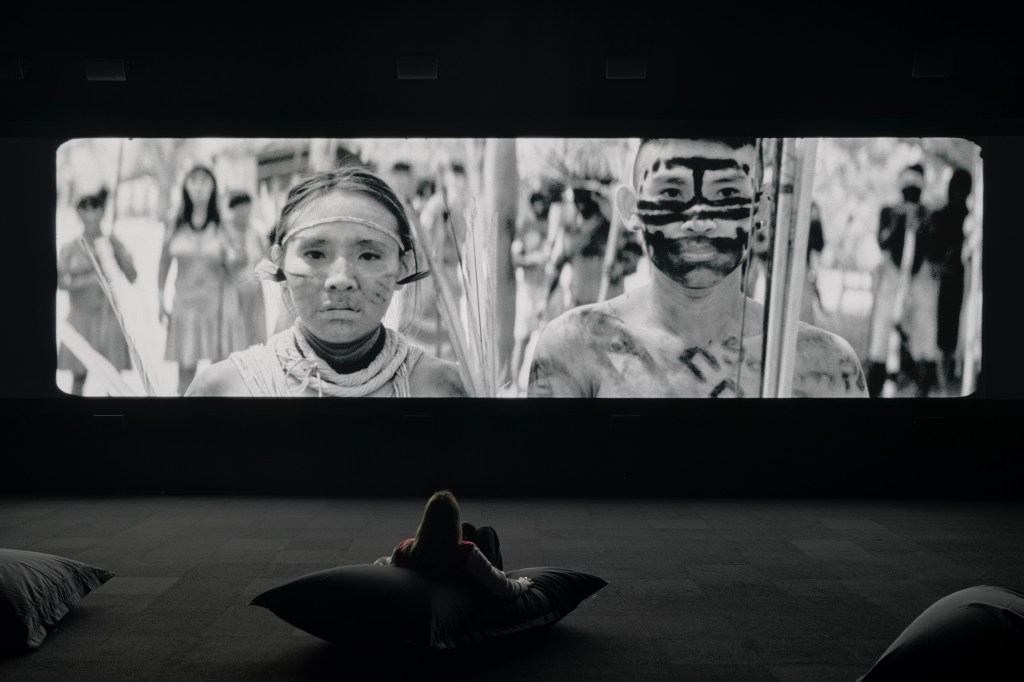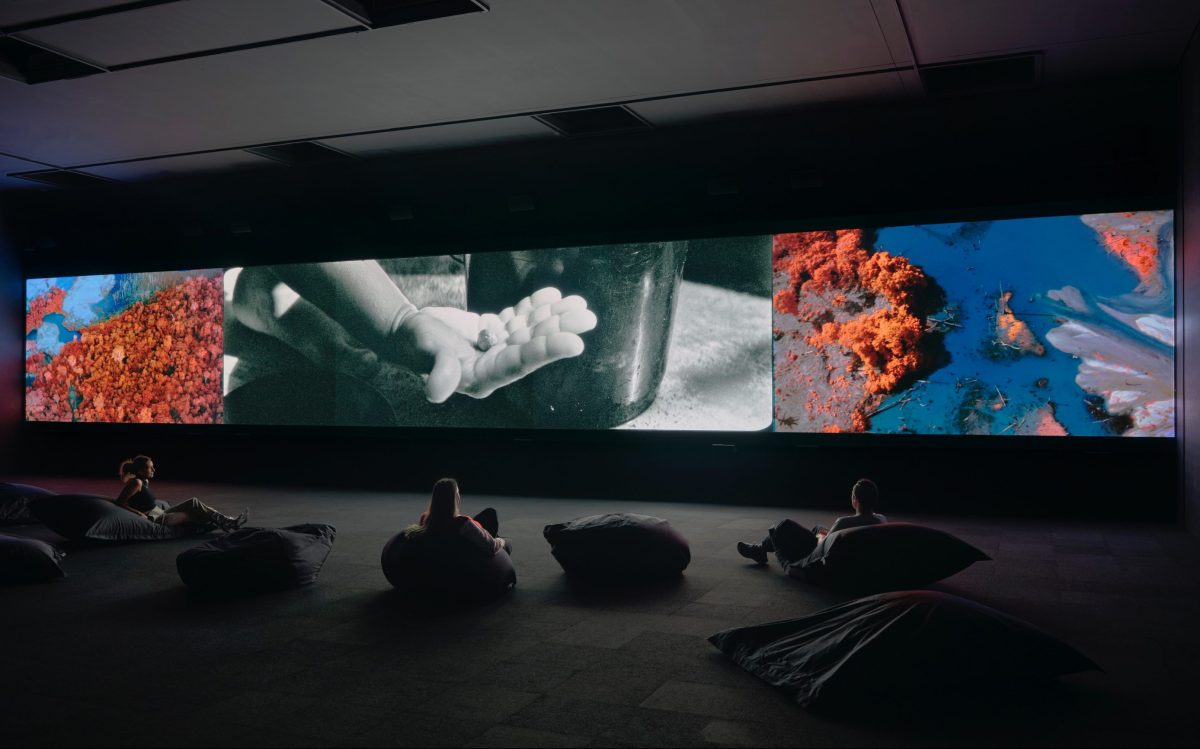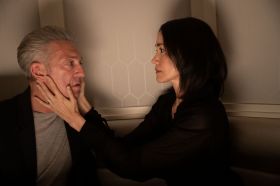To describe Mosse’s film as beautiful slightly misses the mark. Instead, it leaves you somewhat twisted, alternating between haunting scenes of environmental destruction that are simultaneously eerie and sublime, and over-saturated footage that go between the familiar and the alien.
Presented in a black box space next to NGV International’s Level 3 gallery, not many will see the film in its full one hour and 15 minute glory and the experience can vary greatly depending on where you enter and exit the loop.
At some points it is highly-saturated aerial footage of the Amazon rainforest in ultra-high definition. At others it shows immigrants hired by industries solemnly at work, herding, burning, grinding or killing – black blood on ghostly flesh.
Have you ever heard the sound of a tree when it falls, and the silence that follows? Here it’s presented in the raw, alongside the sound of the chainsaw that grinds restlessly at its ancient trunk.
Coupled with the fact that deforestation of the Amazon rainforest has hit a six-year high (that’s 3,988 square kilometres in the first half of 2022), Mosse’s immersive documentation brings to light the fact that destruction can be silent and invisible.
It’s a broken spectre because we are at once the threat and the threatened.
The only segment of the film which presents dialogue – a break from the carefully composed soundtrack – is a speech given by a women tribe leader with subtitles translated for the audience. Seeming to be addressing a figure off camera (at one point mentioning Brazilian president Jair Bolsonaro), she lets out her frustration and fear for her people.
’You make us suffer, why do you disturb our children’s sleep?’, ’This is not your land, we will never give up what’s ours’ … ’You said you’re here to help us. Don’t tell us gallantly and do nothing. Don’t film us for nothing,’ she said with restrained tears as her tribe cheers on.

Further along the film there is a sound reminiscent of a coin drop as the lens shifts to the city, documenting Brazil’s largest Indigenous protest against the destruction of the Amazon in 2021.
Black and white footage highlight the historic event as people gather outside the Supreme Court, headresses and banners against suits and armour. It’s the N95 masks that pull viewers back into the present, reminding us that these events are indeed occurring in our current reality.
Read: Exhibition review: Shadow of the Moon
The film utilises the NGV’s 20 metre screen to full effect (though the gallery struggled a little at first to harness the tech). It switches seamlessly through single to multiple channels, presenting parallels as well as contradictions but never lacking in the power of image or sound.
Due to the diversity of images and stories that Mosse has captured in Broken Spectre, it’s a bit of a shame that there isn’t at least a screening timetable so those who would want to catch the full screening can do so.
Rather than stay as long as you want, this reviewer advises to stay as long as you can.
Broken Spectre is co-commissioned by the National Gallery of Victoria, Melbourne, VIA Art Fund, the Westridge Foundation, and by the Serpentine Galleries.
Additional support provided by Collection SVPL and Jack Shainman Gallery.
On view until 23 April 2023; free.
Actors:
Director:
Format: Movie
Country:
Release:





